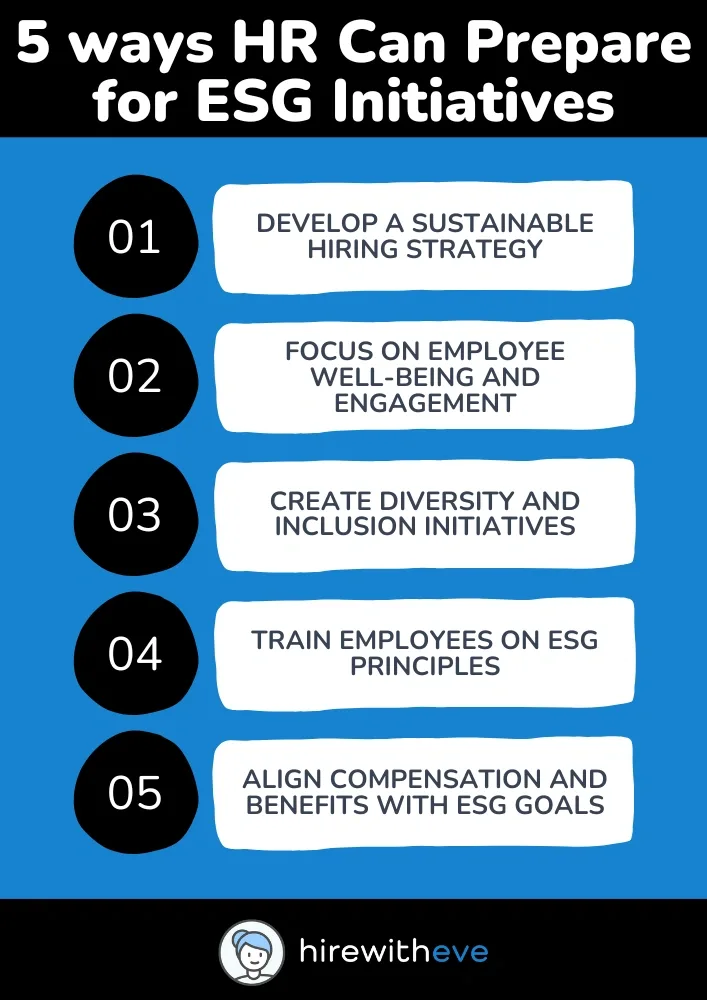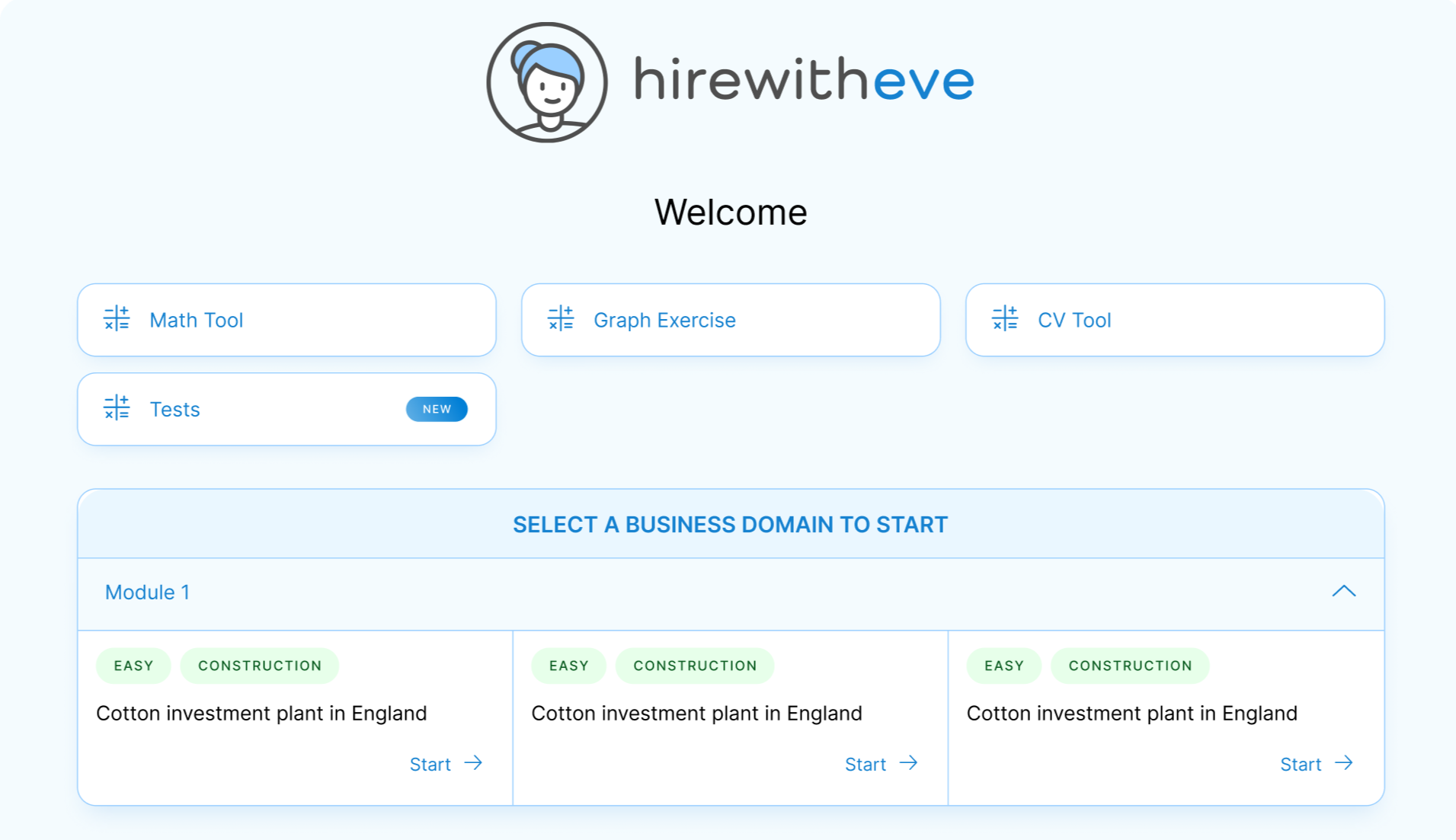What Is ESG and How Should an HR Prepare for It?

In today's rapidly evolving business landscape, companies are not just measured by their financial performance but also by their environmental, social, and governance (ESG) practices. This has led to a growing emphasis on how businesses manage their impact on the environment, society, and their governance structures.
As companies strive to meet these new standards, the role of HR has expanded to include preparing and adapting the workforce to align with ESG initiatives.
In this blog, we will explore what ESG means and how HR professionals can prepare for it, focusing on the relationship between ESG and HR.
Table of contents
Understanding ESG and Its Impact on Businesses
ESG stands for Environmental, Social, and Governance. These three pillars are critical to assessing a company's long-term sustainability and ethical impact. Let's break down these components:
Environmental: This focuses on how a company reduces its carbon footprint, manages waste, uses energy, and addresses climate-related issues.
Social: This pertains to a company’s relationships with its employees, suppliers, customers, and the communities where it operates. It includes areas like labor practices, diversity and inclusion, and employee health and safety.
Governance: This refers to how a company is managed and led. It includes transparency, ethical leadership, board diversity, and adherence to laws and regulations.
For businesses, adopting strong ESG policies is not just a matter of ethics but a strategy for long-term success. Investors and stakeholders are increasingly using ESG factors to guide their decisions. Businesses that do not integrate ESG into their core strategies risk falling behind.
Why ESG Matters to HR?
The link between ESG and HR is vital. While ESG policies may seem like they primarily affect environmental efforts or board-level decisions, they deeply influence the workforce.
Here are several reasons why ESG and HR are interconnected:
Workforce Expectations: Employees today expect more from their employers in terms of social responsibility and sustainability. Companies with strong ESG values tend to attract and retain top talent. HR departments must adapt to these expectations by building a workplace culture that aligns with ESG goals.
Diversity, Equity, and Inclusion (DEI): One of the key aspects of the "Social" pillar in ESG is the promotion of diversity, equity, and inclusion within the workplace. HR professionals play a crucial role in developing and implementing DEI policies that fulfill the social aspect of ESG standards.
Compliance and Governance: The governance aspect of ESG extends to how companies manage issues such as ethical hiring practices, employee rights, and adherence to local and international regulations. HR departments must ensure that their organization's governance policies align with ESG principles, including fair labor practices, anti-discrimination laws, and ethical hiring practices.
Training and Development: As companies evolve to meet ESG standards, there will be a growing need for employees to understand these initiatives. HR plays a pivotal role in designing training programs that help employees grasp the importance of ESG, ensuring that the entire workforce is aligned with these new priorities.
How HR Can Prepare for ESG Initiatives?
Understanding the relationship between ESG and HR is essential, but HR professionals need actionable steps to prepare their organizations for this transformation.
Here are five ways HR can proactively prepare for and support ESG efforts:

Develop a Sustainable Hiring Strategy
Sustainability is a core aspect of ESG, and this should be reflected in hiring strategies. HR departments can implement practices that ensure sustainability in recruitment. For instance, they can partner with organizations that promote sustainable hiring and look for candidates who value ESG principles. Building a team of like-minded professionals who are committed to sustainability will drive the organization's overall ESG initiatives.
Focus on Employee Well-being and Engagement
The "Social" pillar of ESG emphasizes how a company treats its employees. HR can introduce programs that promote employee well-being, such as mental health support, flexible working conditions, and opportunities for growth and development. High employee engagement often translates into a workforce that is more committed to the company’s ESG goals. Regular feedback mechanisms, employee surveys, and transparent communication about ESG initiatives can further enhance this alignment.
Create Diversity and Inclusion Initiatives
One of the cornerstones of ESG is creating a diverse and inclusive workplace. HR professionals must develop and promote DEI programs that go beyond surface-level commitments. These initiatives should include diversity in leadership roles, equitable pay, and efforts to create a more inclusive culture. Transparent reporting on DEI progress is also crucial to meeting ESG standards and showing accountability.
Train Employees on ESG Principles
Training is key when it comes to embedding ESG within the company culture. HR should develop comprehensive training programs to educate employees on the significance of ESG practices. This could include sessions on reducing the environmental impact, ethical decision-making, or understanding governance policies. When employees are well-versed in ESG principles, they are more likely to embrace these initiatives in their daily tasks.
Align Compensation and Benefits with ESG Goals
To encourage employees to actively participate in ESG efforts, HR can link compensation and benefits to ESG goals. For instance, employees could receive bonuses for meeting certain sustainability targets or be offered incentives for engaging in company-sponsored volunteer activities. This not only reinforces the company's commitment to ESG but also motivates employees to align their work with these objectives.
Conclusion
As businesses face increasing pressure to adopt and enhance their ESG practices, HR departments are tasked with playing a key role in these efforts. The connection between ESG and HR is undeniable, and HR professionals must be at the forefront of integrating these principles into their organizational strategies. By focusing on sustainable hiring, promoting diversity and inclusion, and aligning the workforce with ESG values, HR can help build a more resilient and responsible business that meets the expectations of modern stakeholders.
In conclusion, ESG and HR go hand-in-hand, with HR being the driving force behind the successful implementation of ESG policies. As the business landscape continues to evolve, HR departments must be agile, proactive, and committed to embedding ESG principles across all levels of the organization. By doing so, companies will not only enhance their social and environmental impact but also create a stronger, more sustainable future for their workforce and their business.
Target Your Talent
Unlock tailored solutions for your recruitment and hiring needs with Eve Platform's extensive case study library.
Subscribe now to enhance your HR expertise and excel in your role.
Free Resources

Transforming Hiring: 7 Key Recruiting Metrics
Enhancing recruitment processes with data-driven insights for better hiring outcomes.

Reducing Hiring Bias with Hirewitheve.
Utilizing Hirewitheve to combat bias and streamline recruitment processes effectively.

Hiring Detail-Oriented Candidates
HirewithEve enhances hiring by accurately assessing candidate's attention to detail-oriented.








